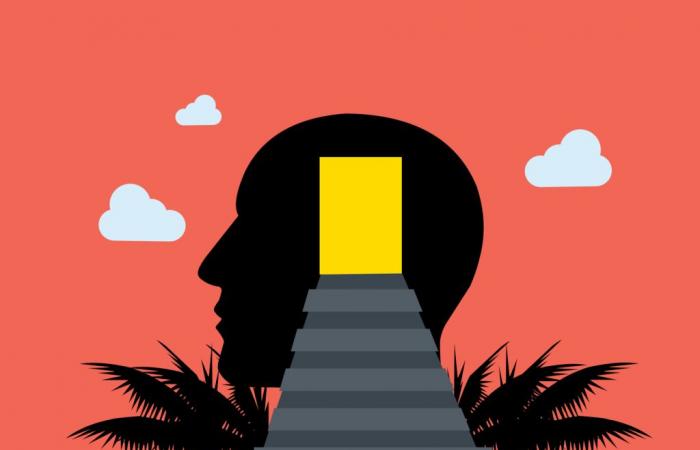Neuroscience. Led by the psychiatry department of Saint-Antoine hospital, with the support of that of Pitié Salpétrière, a large study aims to determine the benefit of reimbursement for repetitive transcranial magnetic stimulation (rTMS) in resistant depression.
Resistant depression (defined by a lack of response to at least two lines of antidepressant treatment) affects more than a third of patients suffering from depression and poses major therapeutic challenges. Repetitive transcranial magnetic stimulation (rTMS), which consists of modulating cerebral metabolism, is a technique validated and internationally recommended for this indication (1). However, it is not yet reimbursed in France, which limits its accessibility. In July 2022, a report from the High Authority for Health (HAS) recommended suspending this reimbursement pending a large study formally demonstrating its benefit in the French system (2). To this end, a Hospital Clinical Research Program (PHRC), led by the psychiatry department of Saint-Antoine hospital (Paris), with the support of the psychiatry department of Pitié Salpêtrière, will be launched, equipped with a budget of 1.8 million, to evaluate the effectiveness and cost-effectiveness of rTMS. Carried out with the support of the HAS, this study could thus be used to support the reimbursement decision, even if other determinants could contribute (in particular a new analysis of the international scientific literature).
Titled TRD*TMS (TRD for Treatment Resistant Depression), this PHRC consists of a multicenter, double-blind study including 866 patients randomly divided into two groups (active or sham rTMS) for a duration of one to six weeks (for 30 to 50 sessions). Patients will receive high frequency treatment on the left dorsolateral prefrontal cortex, in addition to their usual treatment. In the event of a favorable response to treatment (50% reduction in score on a depression scale), a consolidation program is proposed. This protocol seeks to “stick” to what is done most in the centers which participate in this activity on a routine basis (routine care). Patients will be closely monitored during the treatment and up to 1 year afterwards. The recruitment period will extend over 24 months from mid-2025 and 20 centers in France will participate (university hospital centers, psychiatric hospitals, clinics and private practices) in order to guarantee good representativeness of practices. The study will include a cost-utility analysis, crucial for public decision-makers, which will assess whether rTMS presents a good cost-benefit ratio for the health system compared to current treatments.
If the results are positive, this work could lead to reimbursement of rTMS in France, offering patients suffering from resistant depression a new effective and sustainable treatment alternative.
• Contact : Dr Alexis Bourla, [email protected]
1– Yrondi A, Javelot H, Nobile B, Boudieu L, et al. French Society for Biological Psychiatry and Neuropsychopharmacology (AFPBN) guidelines for the management of patients with partially responsive depression and treatment-resistant depression: Update 2024.– Transcranial magnetic stimulation in the treatment of resistant depression in adults, HAS, 2022, www .has-sante.fr






